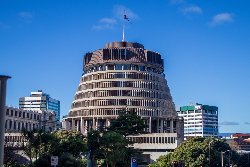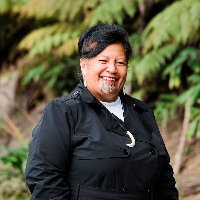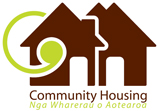Consultus Business Breakfast – Information Economy
Hon. Paul Swain
12 July, 2000 Speech Notes
7.30am – 12 July 2000 - Auckland
Consultus Business Breakfast –Information Economy
Thanks for the opportunity to speak to you today. I'm just going to make some quick introductory remarks about my portfolios before talking about some of the key issues. Then we can get down to some questions.
As you may already know, I hold the portfolios
of:
Commerce - current issues include changes to
the Commerce Act, Takeovers Code and Insider Trading
Communications (including the
telecommunications inquiry and spectrum
auctions)
IT (including the E-Commerce strategy
and summit, as well as E-Government)
Land
Information (including the Landonline project)
And Statistics (planning for next year's Census).
I am also an Associate Minister of Energy with responsibility for the Crown Minerals Act, Treaty claims to the Crown's mineral estate and electricity and gas safety.
And as Associate Minister of Justice I am looking at issues such as computer hacking legislation and the appointment process for the Justices of the Peace
There are many issues in these portfolios which I could speak about today, but time doesn't allow. However, the key question I have to address across all my portfolios is - what is the role of government in a modern, competitive, open economy?
We have tried to answer the question by reflecting on the past. We are therefore not keen to return the heavy-handed, regulated economy of the 70s and early 80s which stifled innovation and entrepreneurship.
Nor are we keen to return to the "hands-off, let the market decide" regime of the late 80s and 90s. This had led to distortions in the economy and a slow movement of capital and people from South to North and now to Australia. This simply will not do.
What is needed is a common sense approach - successful economies are those where the government shows vision and leadership, where public and private sector work in partnership, where both agree on a strategic direction, and both are looking to ensure there is a future for those coming behind us. This is one of the issues Industry NZ, which was born on July 1, will be addressing.
Critical to this is the information/knowledge/new economy. Call it what you will, we need to shift from over-dependence on commodity-based exports to ones based on knowledge. That is what I would like to focus on today.
Definition of knowledge
economy
A major shift around the world is transforming
the way people communicate, learn and work, and the way in
which businesses and economies gain new efficiencies and
create new wealth. This shift has been described in many
ways: information superhighway, information revolution,
information society, information age and information
economy.
New Zealand will not survive by competing on wages with the developing world. We must compete on quality, skills and knowledge where information and communication technologies are developed not just to add value but to create value.
With no disrespect to Stephen Tindall, we don’t want to end up as the Warehouse of the South Pacific. We don’t want to compete on ever decreasing prices.
Countries that embrace the concept of an information and knowledge economy, who have governments who champion it and form partnerships with the private sector to achieve it are the ones that will survive.
In a functioning information economy governments will make better policy decisions and deliver better outcomes; businesses will provide better services to consumers and more vigorously compete; individuals and communities will engage in better communication and create better opportunities for social, professional and educational activity.
The Government has embarked on a range of initiatives, including greater industry and regional coordination, assistance for SMEs and startups, R&D incentives, and better targeted skills and educational programmes. However, let me mention a few issues I am directly involved in.
E-Commerce
The
government is planning to have an e-commerce strategy in
place in New Zealand by the end of the year.
The strategy will outline the huge potential of e-commerce for an isolated nation like New Zealand, identify the roles of government and the private sector, produce some positive case studies, and identify how government and the private sector can work together in partnership to take advantage of this "new economy."
We're talking to government agencies, the private sector and communities. We're after long term direction but we need some short term gains.
We're looking at things like skill levels, and access issues, and we need to remove the barriers to SMEs taking up e-commerce. The government can provide leadership in this but for it to work we need business input.
The strategy will be presented to an e-commerce summit in early November. This is a significant event, in that it signals that Government is serious about e-commerce. It will also demonstrate partnership in action.
Other items for the work programme
include:
The development of an e-commerce guide
for small to medium enterprises
The introduction
of an electronic transactions bill
A government
e-procurement programme by 2003
Computer
anti-hacking legislation.
We have a big challenge to meet in trying to get New Zealand up to the standards it should be at internationally in e-commerce. Countries like Australia, Korea and Singapore are making huge gains on us and we need to move quickly.
E-Government
If we want an
e-commerce ready private sector then we need an e-government
enabled public sector.
E-government is not just about IT projects it's about how IT is making it easier for the public to interact with their government. And when we talk about government we don't just mean the beehive, we also mean the public service, the state sector and local government.
First we need a vision. Ours is:
" New
Zealanders will be able to be able to gain access to
government information and services, and participate in our
democracy, using the Internet, telephones and other
technologies as they emerge."
While our goal is to achieve that vision as soon as we can, it's an amorphous entity. The ground may shift, new technologies will emerge, we need to be able to adapt and be flexible with our vision and our strategy. Our vision and strategy are living documents that will change in time.
The goal is to provide better government services and information, and to build a closer relationship between government and citizens. It is an important part of the future of democracy.
What we are aiming for is service and information delivery at least as good as the private sector – if not better. We want people to have their say and we want government to work better together to achieve that.
At the moment the silo mentality is entrenched in government departments – e-government may help change that. If we can get departments talking to each other and working together the implications for improved access and services for New Zealanders would be huge.
It would mean that changing your address on your drivers licence, would then mean your details would be changed with social services, with public health providers, schools and so on.
Or it could mean being able to pay your tax online, check out the latest piece of legislation, register your car or surf the government's website for new policy proposals, using your 3rd generation cell phone, during the half time of a Super-12 game.
How exactly are we going to do this?
We are establishing an e-government unit in the State Services Commission to drive the vision in the public sector. The e-government strategy will need to be kept under constant review and development.
In the end we hope to have a more transparent system where people can participate in their democracy electronically - that can only be good for New Zealand.
Telecommunications inquiry
Fair and equal access to the new technologies that will
support e-commerce and e-government is a crucial part of any
country’s information economy strategies.
We need to
make sure that there are no roadblocks on the information
highway.
That’s why we are conducting an inquiry into
telecommunications. The Inquiry is considering
interconnection issues between networks, Telecom’s Kiwi
Share obligations, number portability and administration,
the management of Internet traffic and, most importantly,
developing New Zealand as an information economy. The
inquiry team will report to me at the end of
September.
Skills
Another issue we have to take into
account when we think about working in an information
economy is that of skills. Not only do we need to train
people with the technical computing and information skills
that are essential to operate in the new economy we also
need to keep them. This is why as a first step, we have
addressed the cost of student loans. And we need to train
our business leaders and entrepreneurs about managing in
this new form of business environment.
Much of this will mean our tertiary institutions will need to forge closer working relationships with industry. We must also encourage and provide greater take up of research, science, technology and applied technology programmes generally.
Digital
Divide
This is an issue high on the Government's agenda –
the problem of the growing gap between the "information rich
and the information poor."
The purpose of e-government is to bring people together – not to push them part.
The Government must plan e-government in such a way that conventional means of access to government are maintained for those people who need them.
We have to address issues such as making community access to the Internet available for those people who can not access it from their homes and ensure educational and public information programmes are used to help New Zealanders, young and old, in using the new technologies.
Already, the Government is addressing these issues in consultation with the private sector. The view of most people is that the digital divide is a serious problem facing New Zealand's development, that it is solvable in a country the size of NZ, but that it will require a partnership approach and we need to get some pilots underway that are technology-neutral.
Conclusion
I believe New Zealand
can be a leader in the information economy. We have the
initiative and the drive, what we need is the leadership
from government and a clearly laid out plan on how to get
there.
What I've spelt out for you here today is only the beginning. In the next six months you will see action from this government on the development of New Zealand e-commerce and e-government solutions. These actions will make a difference to how we live, work and play. We must move, and quickly. The future of New Zealand is at stake.
ENDS


 Gordon Campbell: On The Public Sector Carnage, And Misogyny As Terrorism
Gordon Campbell: On The Public Sector Carnage, And Misogyny As Terrorism National Maori Authority: Maori Authority Warns Government On Fast Track Legislation
National Maori Authority: Maori Authority Warns Government On Fast Track Legislation NZ Government: Comprehensive Partnership The Goal For NZ And The Philippines
NZ Government: Comprehensive Partnership The Goal For NZ And The Philippines DoC: Canterbury Spotted Skink In Serious Trouble
DoC: Canterbury Spotted Skink In Serious Trouble Te Pāti Māori: Oranga Tamariki Cuts Commit Tamariki To State Abuse
Te Pāti Māori: Oranga Tamariki Cuts Commit Tamariki To State Abuse NZCTU: Inflation Data Shows Need For A Plan On Climate And Population
NZCTU: Inflation Data Shows Need For A Plan On Climate And Population Statistics New Zealand: Annual Inflation At 4.0 Percent
Statistics New Zealand: Annual Inflation At 4.0 Percent


